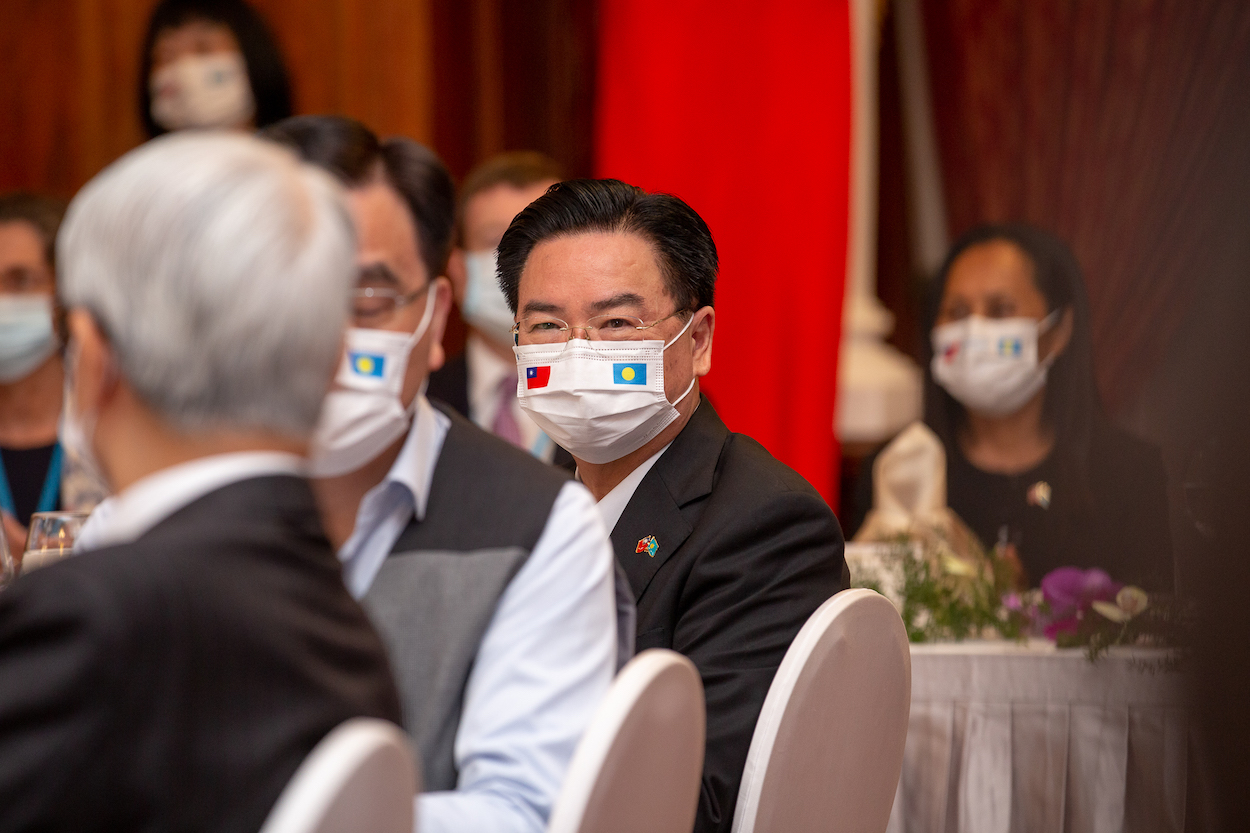by Brian Hioe
語言:
English
Photo Credit: Screenshot
MANY IN TAIWAN were surprised by a wave of support from international countries after the ROC flag was removed from the livestream of a swimming competition on Wednesday. This took place because of displeasure from Chinese authorities, who blocked the livestream because the ROC flag is not allowed to be shown in China.
The swimming competition in question was held by the International Association for the Development of Apnea (AIDA), the largest organizer of free-diving competitions in the world, and took place in Cyprus. Five Taiwanese athletes were in competition, out of 150 athletes from forty countries.
When given the choice between the removal of the ROC flag and the use of a blank space or its replacement with the flag of the International Olympics Committee, Taiwan AIDA chose to go with the blank space. The team was informed of the change in the situation on September 28th. Taiwanese athlete Mia Hou would have found herself the only among 44 remaining competitors to not have her country’s flag displayed on the livestream.
Facebook post by athlete Mia Hou on the incident
Subsequently, however, athletes from Australia, Croatia, France, Germany, Japan, the US, Russia, Slovenia, South Korea, also chose to have their flags removed from the livestream. The Japanese team, in particular, issued a statement on the matter. As a result, few athletes participating in the competition had flags displayed on the livestream.
Following the incident, President Tsai Ing-wen expressed gratitude for the show of solidarity. To this extent, AIDA apologized for the incident, stating that it would ensure that there are separate livestreams for China in the future.
The incident proves a rare victory for Taiwan on the international stage, then. Taiwan participates in many international sporting competitions as “Chinese Taipei” or some variant thereof. The ROC flag is not allowed to be displayed nor is the ROC national anthem allowed to be played.
That being said, while one has seen increased support of Taiwan as of late from eastern European countries, a visit from a French legislative delegation, and support from the US and Japan, solidarity with AIDA Taiwan athletes was likely not an official policy decision from any of the participant countries’ governments. More probably, this was a decision made by athletes themselves.
As such, the incident does not necessarily reflect any official strengthening of relations between Taiwan and the countries that had their flags removed from the livestream to stand in solidarity with Taiwanese athletes, per se. What the incident may reflect, however, is that there is greater international awareness of Taiwan’s exclusion from international bodies, and how it is forced to participate in sporting competitions under names other than the ROC because of Chinese pressure. This may have been highlighted in the wake of the COVID-19 pandemic, which saw Taiwan remain COVID-free while the rest of the world saw expansive lockdowns—despite the potential lessons that Taiwan could offer the rest of the world, Taiwan continued to be excluded from the World Health Organization. Likewise, Taiwan took a record haul in this year’s Tokyo Olympics, but had to participate as “Chinese Taipei.”
In domestic political discourse, the event has been cited as an example of how international allies will stand with Taiwan if it is willing to stand up for itself. It is to be seen whether this feeds into future pushes from pro-independence groups for Taiwan to participate in future Olympics as Taiwan, rather than Chinese Taipei, something that was put up to a national referendum in 2018 but voted down for fear that Chinese pressure would then lead to Taiwan being blocked from Olympics participation altogether.
 Minister of Foreign Affairs Joseph Wu (center). Photo credit: Presidential Office/CC
Minister of Foreign Affairs Joseph Wu (center). Photo credit: Presidential Office/CC
In the meantime, China has focused much fire in recent days on Minister of Foreign Affairs Joseph Wu. Wu was termed a “diehard” Taiwanese independence supporter by China’s Taiwan Affairs Office (TAO). The TAO also quoted a poem by Mao originally used to criticize the US and the Soviet Union, depicting Taiwan as shrill in its calls for aid to the international world.
It is unclear what China intends to accomplish through attacks on Joseph Wu, though China may hope to frame Wu as politically irrational in the pursuit of Taiwanese independence, hoping to frame Taiwan as a “troublemaker” in cross-strait relations. This framing has worked well for China in the past, allowing for China to depict Taiwan as the aggressor that is unnecessarily provoking tensions in cross-strait relations—never mind that this would be a form of victim-blaming if nothing else.
Indeed, on the contrary, while yesterday was Chinese National Day, China still saw fit to send a record thirty-eight warplanes into Taiwan’s Air Defense Identification Zone, as a show of force. China’s priorities—as well as who the real aggressor is—should be clear.

